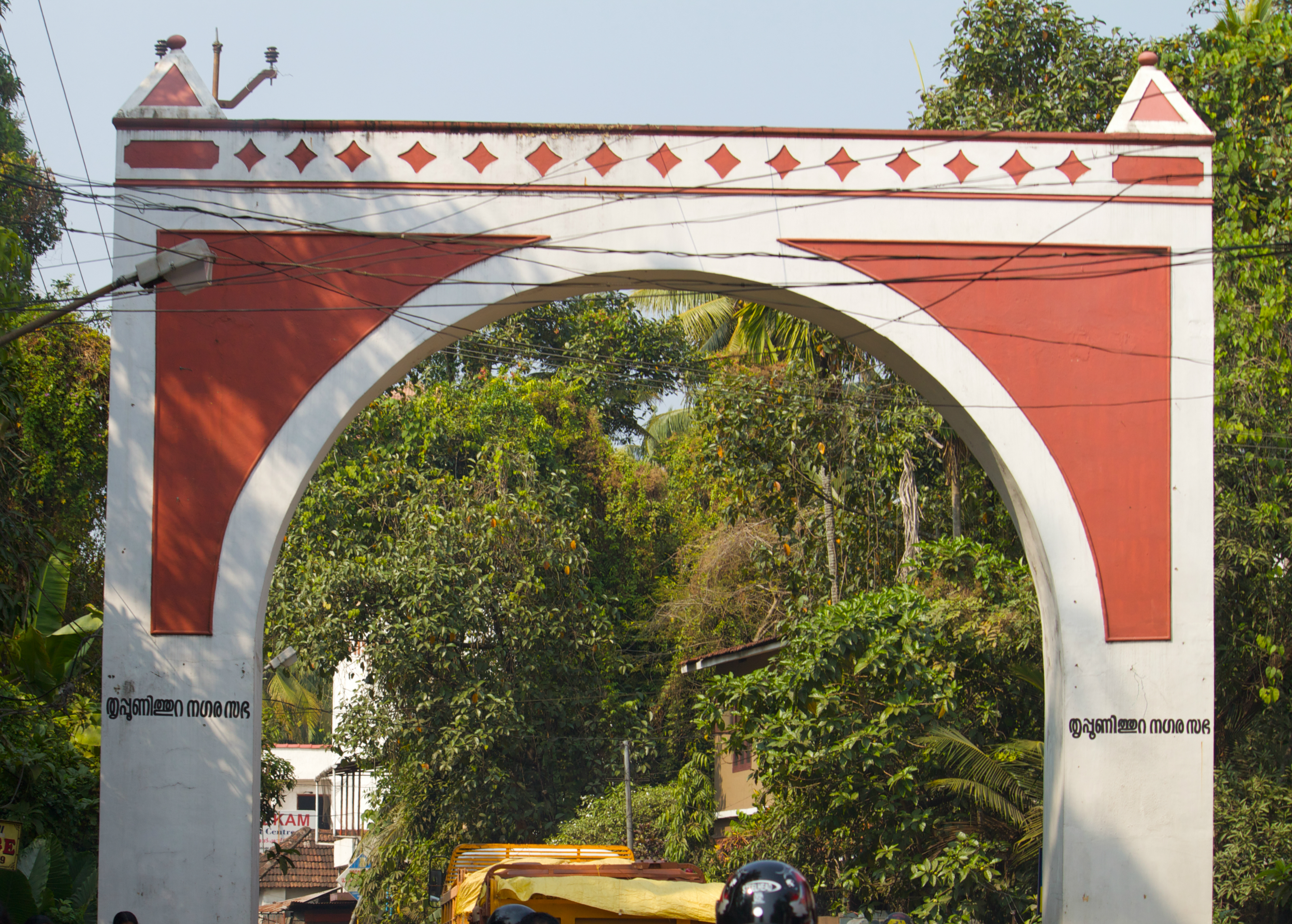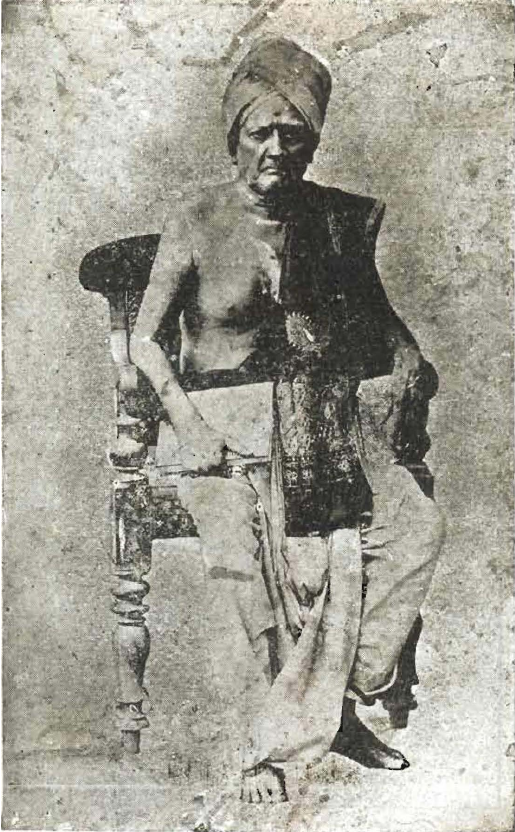|
T. K. Govinda Rao
T. K. Govindarao (Tripunithura Krishnarao Govindarao) was the first Malayali film musician and a Carnatic musician (21 April 1929 – 18 September 2011). Earlier life T. K. Govindarao was a proponent of melody. He was born as the son of Tripunithura Vadakkekkotta Chakkalamutt Pallisserrimadathil Krishnarao and Kamalammal. The first Malayalam film background song ''Subhaleela'' in the movie Nirmala was sung by him. The first Malayalam movie duet ''Paaduka poonkuyile'' too was sung by him along with P. Leela. He sang only in this movie where the lyrics was by G Sankara Kurup and the score was by P. S. Divakar. He took an initial training under Chembai Vaidhyanatha Bhagavathar and Later became the disciple of Musiri Subrahmanya Iyer and turned to Carnatic Classical Music. He worked as chief producer at Akasavani Delhi and as producer at Akasavani Chennai. He was the president of Sri Tyagaraja Sangita Vidvat Samajam, Tyagarajapuram, Chennai. He published the works of Thyagarajar, ... [...More Info...] [...Related Items...] OR: [Wikipedia] [Google] [Baidu] |
Thrippunithura
Thrippunithura or Tripunithura (), is a prominent historical and residential region in the City of Kochi in Kerala, India. Located about 7 km (4 mi) from the city centre, Tripunithura was the capital of the erstwhile Kingdom of Cochin. The descendants of the Cochin royal family still live in the palaces here. The Hill Palace situated in Tripunithura was the palace of Maharaja of Cochin, the ruler of Kingdom of Cochin. Tripunithura is also well known for its historical cultures and worldwide famous because of Sree Poornathrayeesa Temple and the annual festival ''Vrishchikoltsawam'' that takes place at the temple. In local administration, it is a municipality named Tripunithura Municipality. In the state administrative structure, Tripunithura is part of the Ernakulam District in the state of Kerala. Etymology Some latter day Sanskrit enthusiasts describe the origin of the name to "pūrṇa vēda puri" — the town of Vedas in its entirety. Another possible origi ... [...More Info...] [...Related Items...] OR: [Wikipedia] [Google] [Baidu] |
Musiri Subramania Iyer
Musiri Subramania Iyer (9 April 1899 – 25 March 1975) was a Carnatic vocalist whose stage performing career spanned the 1920s to the 1940s. After retirement from the stage, he remained an iconic figure in Carnatic music as a dedicated teacher and leader in the Carnatic community. His bhava-laden renditions of Carnatic songs have become the measuring stick for generations of Carnatic vocalists. Musiri Subramania Iyer is considered one of the giants of Carnatic music in the twentieth century. Early life and career Musiri Subramania Iyer was born in Bommalapalayam in the Trichy district of Tamil Nadu. His father, Sankara Sastry was a Sanskrit pandit. One of three siblings, he lost his mother, Seethalakshmi, as a boy and his sister Rajathi passed when she was but a child. His family was poor—in later life Musiri seldom spoke about those early years. He married Nagalakshmi when he was 14 years old. Musiri Subramania Iyer learned to fluently speak, read and write in English ... [...More Info...] [...Related Items...] OR: [Wikipedia] [Google] [Baidu] |
Tyagaraja
Thyagaraja (Telugu: త్యాగరాజ) (4 May 1767 – 6 January 1847), also known as Thyāgayya and in full as Kakarla Thyagabrahmam, was a composer and vocalist of Carnatic music, a form of Indian classical music. Tyagaraja and his contemporaries, Shyama Shastri and Muthuswami Dikshitar, are regarded as the Trinity of Carnatic music. Thyagaraja composed thousands of devotional compositions, most in Telugu and in praise of Lord Rama, many of which remain popular today, the most popular being "Nagumomu". Of special mention are five of his compositions called the ''Pancharatna Kritis'' ( "five gems"), which are often sung in programs in his honour, and ''Utsava Sampradaya Krithis'' ( Festive ritual compositions), which are often sung to accompany temple rituals. Tyagaraja lived through the reigns of four kings of the Maratha dynasty — Tulaja II (1763–1787), Amarasimha (1787–1798), Serfoji II (1798–1832) and Sivaji II (1832–1855), although he served none of ... [...More Info...] [...Related Items...] OR: [Wikipedia] [Google] [Baidu] |
Muthuswami Dikshitar
Muthuswami Dikshitar (Mudduswamy Dikshitar)(, 24 March 1776 – 21 October 1835), mononymously Dikshitar, was a South Indian poet, singer and veena player, and a legendary composer of Indian classical music, who is considered one of the musical trinity of Carnatic music. Muthuswami Dikshitar was born on 24 March 1775 in Tiruvarur near Thanjavur, in what is now the state of Tamil Nadu in India, to a family that is traditionally traced back to Virinichipuram in the northern boundaries of the state. His compositions, of which around 500 are commonly known, are noted for their elaborate and poetic descriptions of Hindu gods and temples and for capturing the essence of the raga forms through the vainika (veena) style that emphasises gamakas. They are typically in a slower speed (chowka kala). He is also known by his signature name of Guruguha which is also his mudra (and can be found in each of his songs). His compositions are widely sung and played in classical concerts of Carnatic mu ... [...More Info...] [...Related Items...] OR: [Wikipedia] [Google] [Baidu] |
Shyama Shastri
Shyama Shastri (; 26 April 1762 – 1827) or Syama Sastri was a musician and composer of Carnatic music. He was the oldest among the Trinity of Carnatic music, Tyagaraja and Muthuswami Dikshitar being the other two. Early life and career Shyama Shastri, whose birth name was Venkata Subrahmanya, was born on 26 April 1762 in a Telugu Brahmin family. He was also known as one of the trinity of carnatic music. To later generations, he is better known by his adopted name Shyama Shastri or by his musical mudra (signature) Shyama Krishna. He was born in Tiruvarur, in what is now the state of Tamil Nadu. He received his instruction in the vedas, astrology, and other traditional subjects early on and learned music from his maternal uncle. He was later trained in music by Adiappayya, a noted durbar musician of Thanjavur. Although Śyāma Śastri did not compose as many ''kritis'' as his two prolific contemporaries, his compositions are still well known due to the literary, melodic ... [...More Info...] [...Related Items...] OR: [Wikipedia] [Google] [Baidu] |
Swathi Thirunal Rama Varma
( ml, സ്വാതി തിരുനാള് രാമവർമ്മ) (16 April 1813 – 26 December 1846) was the Maharaja of the Kingdom of Travancore. He is also considered as a brilliant music composer and is credited with over 400 classical compositions in both Carnatic and Hindustani style.http://print.achuth.googlepages.com/SwathiThirunalandSciencev3.0.pdf A well-formulated code of laws, courts of justice, introduction of English education, construction of an observatory, installation of the first Government printing press, establishment of the first manuscripts library were amongst the many initiatives taken by Svāti Tirunāḷ, as a King, to modernise Travancore. Early life Svāti Tirunāḷ was born into the Venad dynasty of the Matrilineal royal family of Travancore, which is now a part of Kerala, on 16 April 1813. He was the second child of Queen Gowri Lakshmi Bayi who ruled Travancore from 1811 to 1815, and Raja Raja Varma Koil Thampuran of C ... [...More Info...] [...Related Items...] OR: [Wikipedia] [Google] [Baidu] |
Sangeetha Kalanidhi
Sangeetha Kalanidhi or Sangeeta Kalanidhi (Tamil: சங்கீத கலாநிதி, Sanskrit : संगीत-कला-निधि) (''sangeetha'' = music, ''kala'' = art, ''nidhi'' = treasure or ocean) is the title awarded yearly to a Carnatic musician by the Madras Music Academy. From 1929 to 1941, the award did not exist. The idea of the award was conceived in 1942 by the then Academy President KV Krishnaswami Iyer; and on 1 January 1943, all musicians who had presided over the annual conferences between 1929 and 1942 were awarded the title. This included 2 or 3 past presidents - Palamarneri Swaminatha Iyer (1931), probably Umayalpuram Swaminatha Iyer (1936) and Mangudi Chidambara Bhagavatar (1937) - who were no more, but no posthumous award has been presented since then. Some sources cite 1946 as the year of death for Umayalpuram Swaminatha Iyer, in which case he might have received Sangeet Kalanighi award in his lifetime only. Sangeetha Kalanidhis Source(s): ... [...More Info...] [...Related Items...] OR: [Wikipedia] [Google] [Baidu] |
Madras Music Academy
Madras Music Academy is one of the earliest established music academies in South India. Before the concept of infrastructure was introduced to India in the early 1920s, it was a gathering for elite musicians simply called (and is still more commonly referred to as) Music Academy () It plays an important role in encouraging and promoting primarily the Carnatic Music Indian art form. It played a vital role in the revival of the Indian classical dance form of Bharatnatyam in the 1930s when it faced near extinction due to a negative connotation caused by conservative societal standards. They also run a music school called the Teachers college of Carnatic Music which has many eminent musicians on its faculty. Musicians such as Tiger Varadachariar, Appa Iyer, Valadi Krishnaiyer and Mudicondan Venkatarama Iyer adorned the chair of Principal of the Teacher's College. History In 1927, the Indian National Congress held the All India Music Conference in Madras. At the end of the con ... [...More Info...] [...Related Items...] OR: [Wikipedia] [Google] [Baidu] |
1929 Births
Nineteen or 19 may refer to: * 19 (number), the natural number following 18 and preceding 20 * one of the years 19 BC, AD 19, 1919, 2019 Films * ''19'' (film), a 2001 Japanese film * ''Nineteen'' (film), a 1987 science fiction film Music * 19 (band), a Japanese pop music duo Albums * ''19'' (Adele album), 2008 * ''19'', a 2003 album by Alsou * ''19'', a 2006 album by Evan Yo * ''19'', a 2018 album by MHD * ''19'', one half of the double album ''63/19'' by Kool A.D. * ''Number Nineteen'', a 1971 album by American jazz pianist Mal Waldron * ''XIX'' (EP), a 2019 EP by 1the9 Songs * "19" (song), a 1985 song by British musician Paul Hardcastle. * "Nineteen", a song by Bad4Good from the 1992 album '' Refugee'' * "Nineteen", a song by Karma to Burn from the 2001 album ''Almost Heathen''. * "Nineteen" (song), a 2007 song by American singer Billy Ray Cyrus. * "Nineteen", a song by Tegan and Sara from the 2007 album '' The Con''. * "XIX" (song), a 2014 song by Slip ... [...More Info...] [...Related Items...] OR: [Wikipedia] [Google] [Baidu] |
Malayalam Playback Singers
Malayalam (; , ) is a Dravidian language spoken in the Indian state of Kerala and the union territories of Lakshadweep and Puducherry (Mahé district) by the Malayali people. It is one of 22 scheduled languages of India. Malayalam was designated a "Classical Language of India" in 2013. Malayalam has official language status in Kerala, and Puducherry ( Mahé), and is also the primary spoken language of Lakshadweep, and is spoken by 34 million people in India. Malayalam is also spoken by linguistic minorities in the neighbouring states; with significant number of speakers in the Kodagu and Dakshina Kannada districts of Karnataka, and Kanyakumari, district of Tamil Nadu. It is also spoken by the Malayali Diaspora worldwide, especially in the Persian Gulf countries, due to large populations of Malayali expatriates there. There are significant population in each cities in India including Mumbai, Bengaluru, Delhi, Kolkata, Pune etc. The origin of Malayalam remains a matter of d ... [...More Info...] [...Related Items...] OR: [Wikipedia] [Google] [Baidu] |




.jpg)